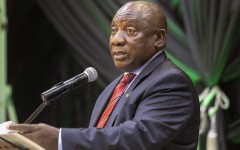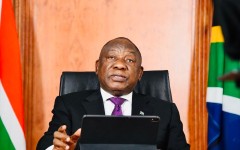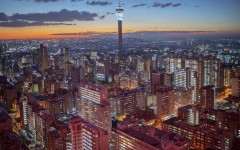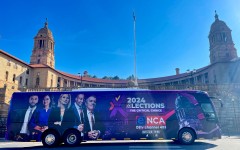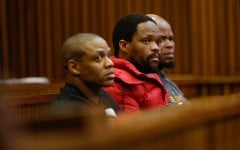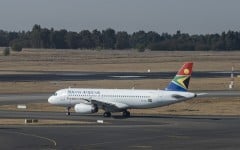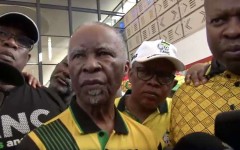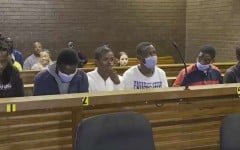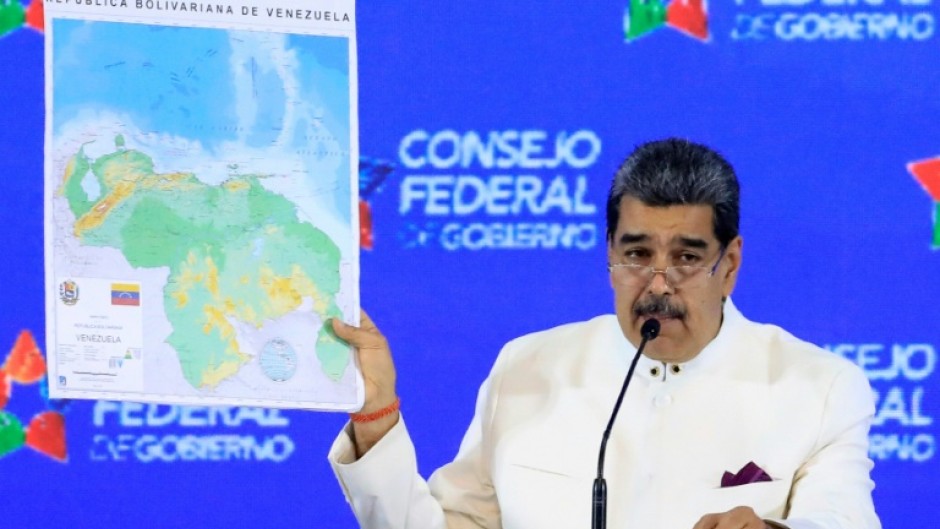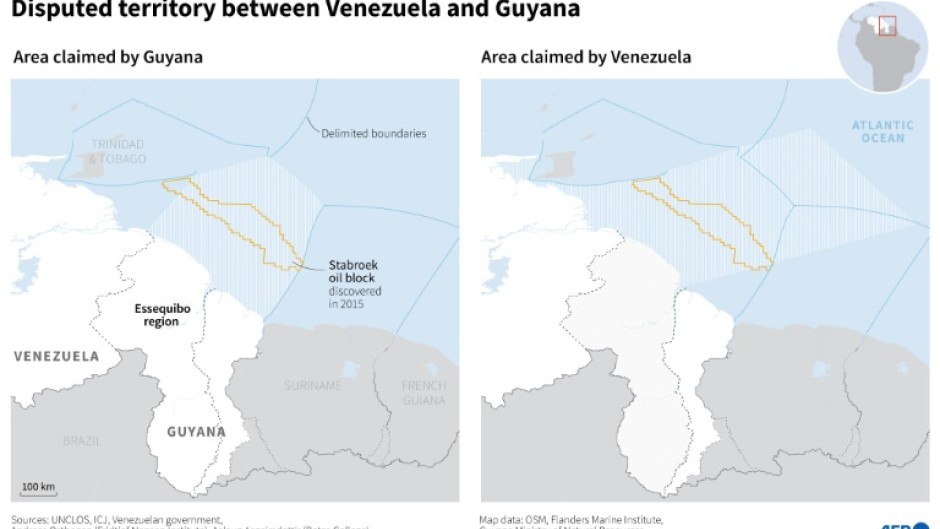UN Security Council meets on escalating Guyana-Venezuela row
The United Nations Security Council is to meet behind closed doors Friday on the fast-escalating row between South American neighbors Venezuela and Guyana over a disputed oil-rich region.
The Council called the meeting at the request of Guyana, which claimed action taken by Caracas with regards to the Essequibo region "threatens international peace and security."
World leaders called for calm as Venezuela decried joint US-Guyana military exercises as a "provocation" and vowed to push ahead with the "recovery" of the region, which both neighbors claim as their own.
Fears of the conflict blowing up have deepened after Venezuelan President Nicolas Maduro's government held a controversial referendum Sunday on the fate of Essequibo.
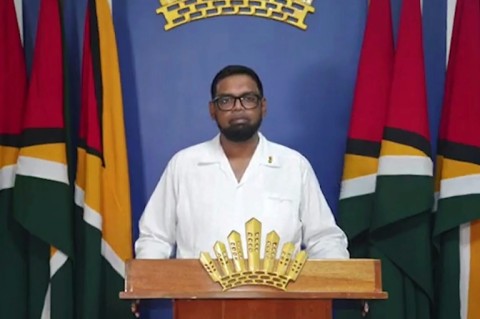
The region has been administered by Guyana for more than a century and is the subject of border litigation before the International Court of Justice (ICJ) in The Hague.
It makes up about two-thirds of Guyanese territory and is home to 125,000 of the country's 800,000 citizens, but is also claimed by Venezuela.
Caracas does not recognize the ICJ's jurisdiction and is seeking to bring the area under its rule.
The United States, through National Security Council spokesman John Kirby, urged the sides Thursday to find a diplomatic solution to the territorial dispute, saying "we don't want to see this come to blows."
But Washington provoked an angry response from Caracas by announcing via the embassy in Georgetown that it would hold joint "flight operations within Guyana" as part of "routine engagement and operations to enhance security partnership" with its ally.
"This unfortunate provocation by the United States in favor... of ExxonMobil in Guyana is another step in the wrong direction," Venezuelan Defense Minister Vladimir Padrino Lopez said on X, formerly Twitter.
He added: "We will not be diverted from our future actions for the recovery of the Essequibo," where the US oil giant has discovered crude.
In response, Guyanese Vice-President Bharrat Jagdeo said Venezuela "is not going to succeed, now or ever" at taking the region.
"Every single movement that Venezuelans make, particularly in the proximity of our borders, is tracked, every single one of them," he said.
- 'Unwavering support' -
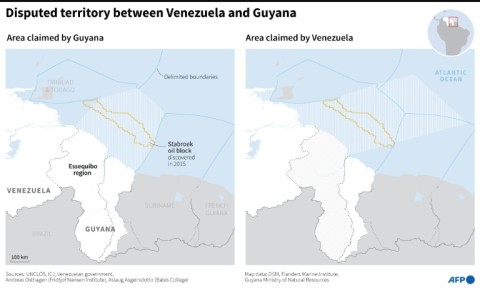
In Brazil, President Luiz Inacio Lula da Silva voiced "growing concern" Thursday about the tensions on his country's northern border.
Lula told a summit of South America's Mercosur bloc: "If there's one thing we don't want here in South America, it's war."
The regional group, composed of Argentina, Brazil, Paraguay and Uruguay, issued a statement urging Georgetown and Caracas to seek a peaceful solution and warning against "unilateral actions." It was also signed by Chile, Colombia, Ecuador and Peru.
The Brazilian army said Wednesday it was reinforcing its presence in two northern cities.
British Foreign Secretary David Cameron also warned Venezuela not to take "unilateral action" in the dispute. Guyana is an English-speaking former colony of Britain and the Netherlands.
Secretary of State Antony Blinken in a phone call with Guyana's President Irfaan Ali on Wednesday reaffirmed the United States' "unwavering support for Guyana's sovereignty."
Asked Thursday how far Washington would go in supporting Guyana, Kirby said he did not want to "speculate about that kind of thing."
Russia, a close ally of Venezuela's Maduro, added its voice Friday to the choir, urging a "peaceful solution."
"We call on the parties to refrain from any actions that could unbalance the situation and cause mutual harm," Russian foreign ministry spokeswoman Maria Zakharova said in a statement.
Guyana insists Essequibo's frontier was determined by an arbitration panel in 1899.
But Venezuela claims the Essequibo River to the region's east forms a natural border recognized as far back as 1777.
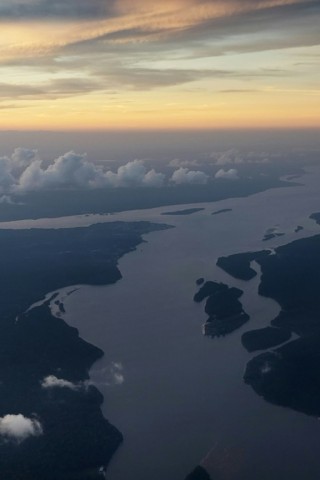
The long-running dispute has intensified since ExxonMobil discovered oil there in 2015, and Caracas called a referendum after Guyana started auctioning off oil blocks in August.
In Sunday's plebiscite, voters were asked whether citizenship should be granted to the English-speaking people of a new "Guyana Esequiba State" and "consequently incorporating said state on the map of Venezuelan territory."
Officials in Caracas said 95 percent of voters supported the measures.
Two days after the vote, Maduro proposed a bill to create a Venezuelan province in Essequibo and ordered the state oil company to issue licenses for extracting crude in the region.
Maduro's 2018 reelection was rejected by the United States and dozens of other nations as fraudulent. He is widely expected to seek a third consecutive term next year.
By Amélie Bottollier-depois

